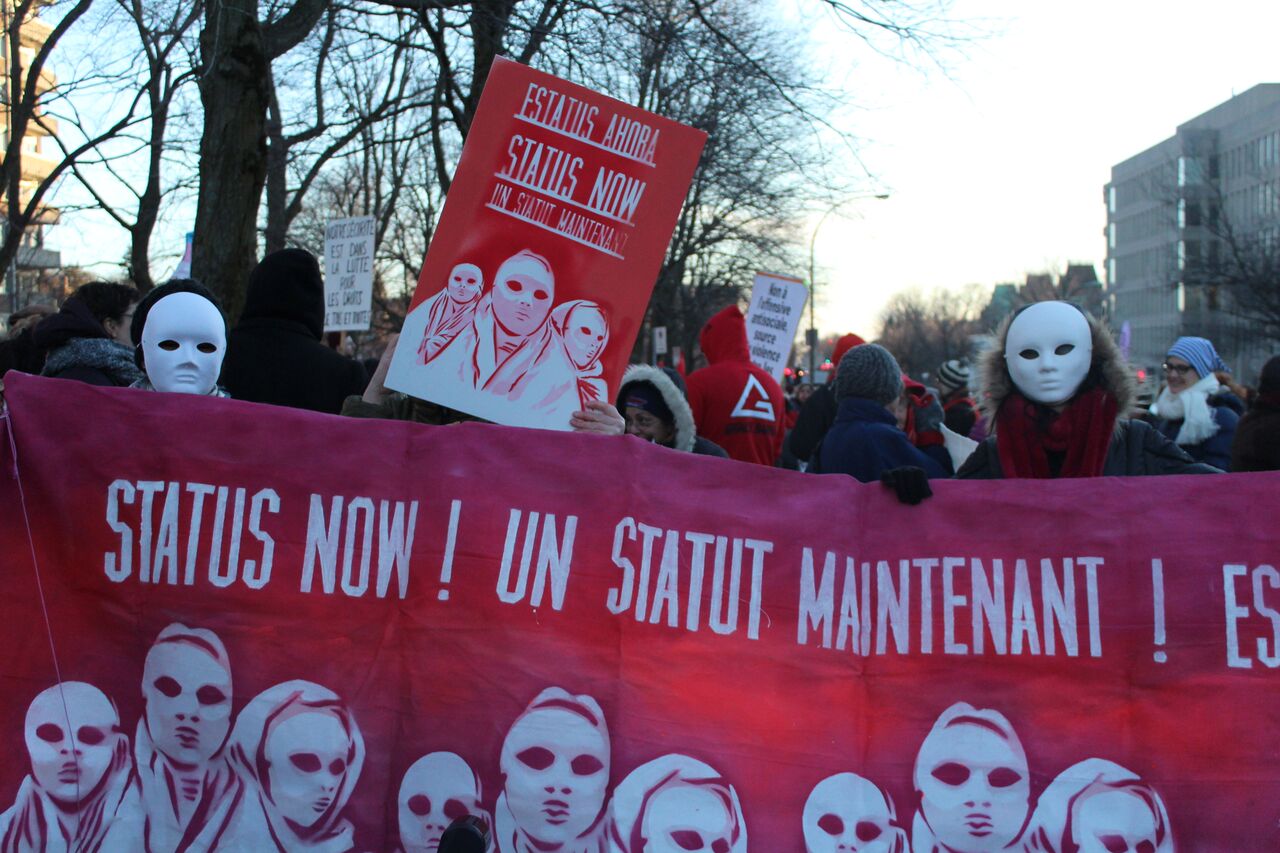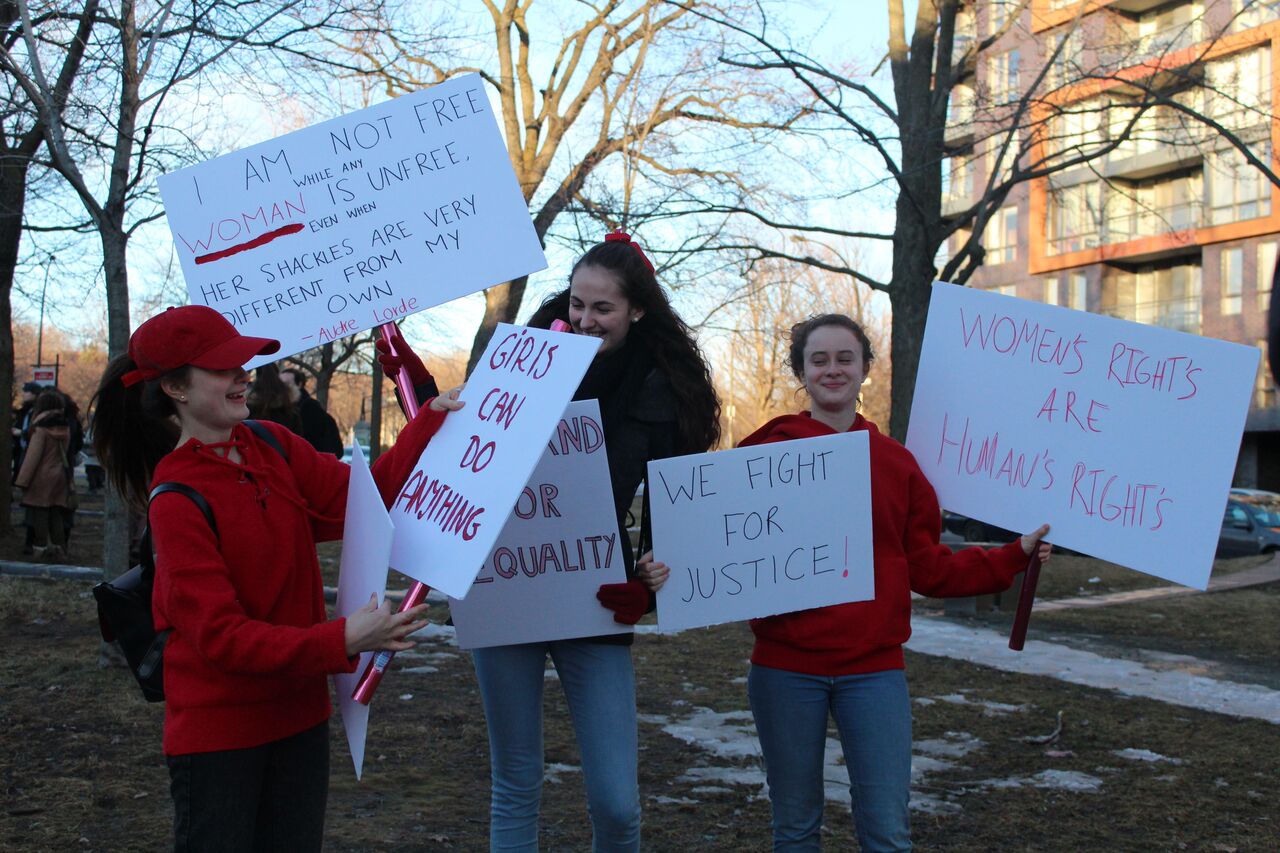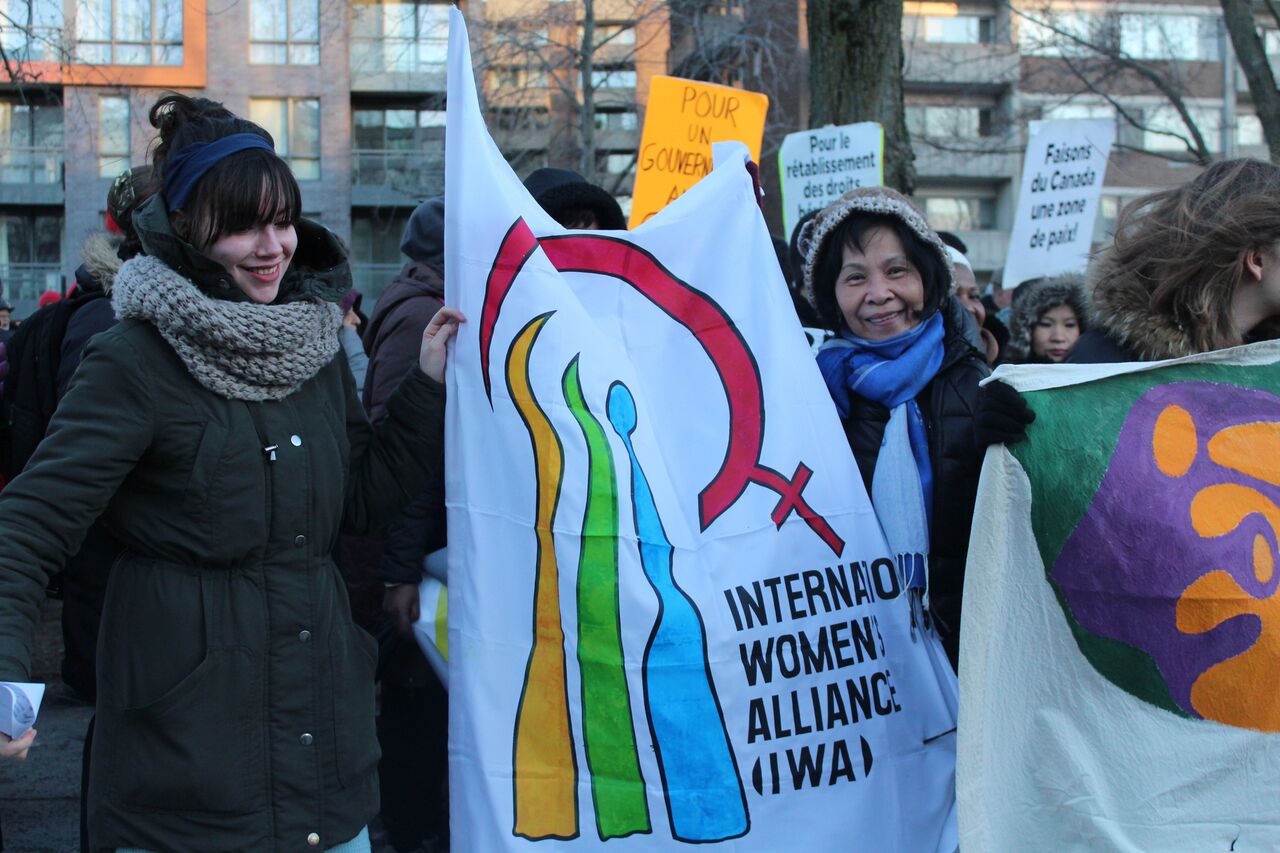Hundreds of Montrealers took to the streets on March 8 to celebrate International Women’s Day.
Protesters met at 5 p.m on the corner of Queen Mary near Côte-Des-Neiges metro station, and at 6 p.m. marched to Nelson Mandela Park.
Women held signs that read, “We demand income equality” and “Where are the missing native indigenous women.”
The march began at Queen Mary Square in honour of the 14 women who were murdered at École Polytechnique on December 6, 1989, said Marie Boti, the organizer of Montreal’s International Women’s Day march.
Elizabeth Shepard, a protester and mother of two toddlers, explained her reasons for taking part in the social movement. “With statistics that show that women are making [less than] of what men are financially, in Canada, I feel like it is important for my daughters to know that, and that in the future that they can surpass this,” said Shepard.
Statistics Canada released new data on International Women’s Day this year, identifying that Canadian women earned 87 cents an hour for every dollar made by men in 2015.
“I am proud to be a woman these days,” said Sandy Bourdelais, a Montreal university student. “I am here to support women’s rights, and I am proud that our ancestors have fought for our freedom today.”

“I hope that women can be treated equally,” Bourdelais said.
“The women’s march that we’re having right now is an amazing opportunity to celebrate this day because, unfortunately, we live in a patriarchy that still oppresses women,” said Samy Cheallah, a male student and marcher.

“Whether it’s working-class women, trans women, women from all over the world, it is important that we all mobilize and create a community where people can get together and raise their voices,” he told The Concordian.

“This year, SdBI will celebrate its 40th year,” said Julia Dyck, the communications and events coordinator at SdBI. “What we are seeing at the institute is that feminism is stronger than it has ever been.”
“It is not just rights for women—SdBI takes an intersectional approach on issues of racism, sexualism, colonialism, transism, ablelism and a generally social justice approach to all of these things,” Dyck said.

“International Women’s Day is a day to acknowledge how far we have come and all the important work women have accomplished and to address inequality,” Dyck explained. “Although there is a long way to go and there remains huge gaps in gender inequality and along the lines of race ability and religious social class, the idea that all of these things make up your experience is not as useful as looking at all of these issues together. “




